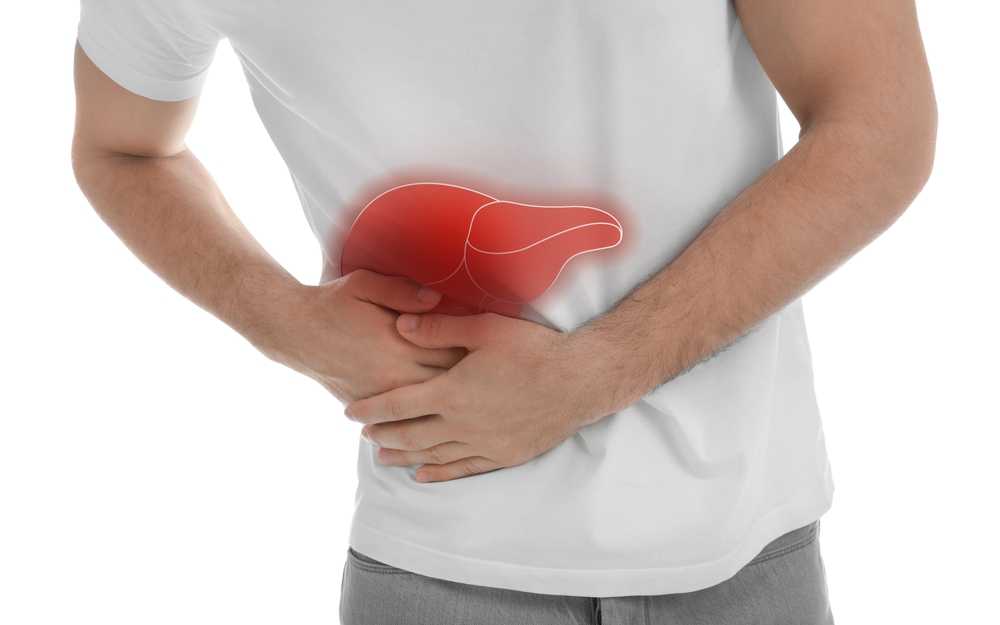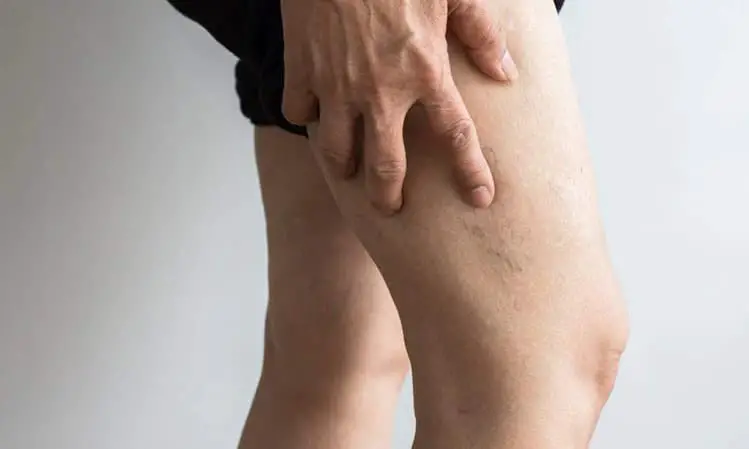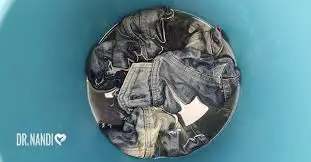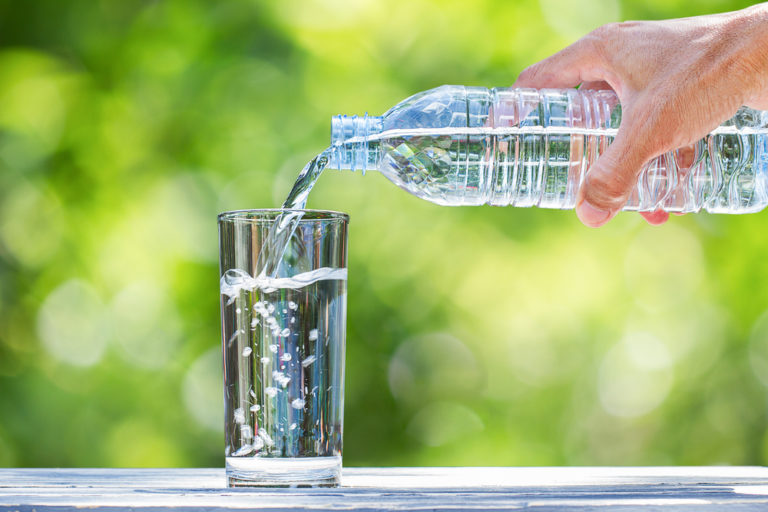The liver, a tireless organ often overshadowed by the heart and brain, quietly carries out some of the most essential tasks in the body. But, despite its critical role in detoxification and metabolism, it is surprisingly vulnerable to threats that often go unnoticed. Hidden within the daily routines of medication and wellness supplements lies the potential for damage that can be both slow and insidious. Could these substances, often taken in the name of health, be quietly undermining the very organ they’re supposed to support?
It may not be obvious at first, but subtle signs—easily mistaken for minor discomforts—could be clues of something much more serious brewing beneath the surface. And once the liver starts showing distress, the consequences can be far-reaching.
What if something as simple as an over-the-counter drug or a seemingly harmless herbal supplement could set off a chain of events that your body struggles to recover from?
The Silent Powerhouse – Your Liver’s Role
Your liver is one of the most critical organs in your body, often working silently behind the scenes. This powerhouse organ performs a wide range of essential functions to keep you healthy. It detoxifies harmful substances, metabolizes nutrients, and regulates chemicals vital for bodily functions. But while it plays such a crucial role, the liver is often overlooked until problems arise—especially when it comes to the impact of supplements that cause liver damage.
The liver is your body’s ultimate filtration system, processing everything you consume—from food and drinks to medications and supplements. However, just like any machine, overburdening it can lead to breakdowns. Supplements, which many people take to enhance their health, can ironically pose a threat to liver health. Some supplements bad for liver health may seem harmless, but even those marketed as natural or beneficial can cause harm if not carefully monitored.
It’s important to recognize that while your liver is a resilient organ, it’s not invincible. The effects of supplements and medications on the liver are often underestimated, making it vital to approach liver health with care and awareness. Understanding how this organ works and how external factors like supplements can harm it is the first step toward maintaining its health.

Warning Signs – 7 Symptoms of Liver Injury
When your liver is not functioning optimally, the body often sends out warning signals. Recognizing these signs early can help you take steps to prevent more severe damage. Liver injury, particularly from medications or supplements that cause liver damage, can manifest through various symptoms. Let’s dive into seven of the most common indicators of liver distress.
1. Nausea or Vomiting
Unexplained nausea or vomiting can be one of the first signs of liver distress. This can occur due to the liver’s impaired ability to process toxins effectively. When liver function is compromised, it disrupts normal digestion, leading to gastrointestinal symptoms like nausea. [1]
2. Abdominal Pain or Swelling
Liver damage often causes discomfort in the upper right portion of the abdomen, where the liver is located. This may be accompanied by swelling or a sensation of fullness. Swelling may occur because the liver is inflamed, which can lead to increased pressure on surrounding organs.
3. Fatigue or Weakness
Feeling constantly tired or experiencing unexplainable weakness is another common symptom of liver injury. This happens because the liver plays a crucial role in energy production, and any impairment can lead to low energy levels. Chronic fatigue is often reported when the liver is unable to efficiently remove toxins from the bloodstream. [2]
4. Loss of Appetite
If you suddenly find yourself with little or no appetite, your liver may be the culprit. When the liver is struggling to function, it can cause a loss of interest in food and even early satiety (feeling full quickly). This symptom often goes hand-in-hand with nausea or vomiting.
5. Dark Urine
The color of your urine can be a subtle yet important indicator of liver health. When the liver is injured, it may have trouble processing bilirubin, a byproduct of red blood cell breakdown. This can lead to dark-colored urine, often resembling the color of cola. [2]
6. Jaundice (Yellowing of the Skin or Eyes)
Perhaps the most well-known sign of liver dysfunction, jaundice, occurs when there is a buildup of bilirubin in the blood. This leads to a yellowing of the skin and the whites of the eyes. It is a clear signal that the liver is unable to perform its detoxification role properly. [2]
7. Easy Bruising or Bleeding
The liver is responsible for producing proteins that help with blood clotting. When it’s damaged, it may not produce enough of these proteins, leading to easy bruising or prolonged bleeding. This is often one of the later-stage symptoms of liver disease.
These signs are not exclusive to liver damage caused by supplements or medications but are commonly linked to drug-induced liver injury (DILI). Many over-the-counter drugs, including ibuprofen and acetaminophen, as well as supplements like green tea extract or kava kava, have been associated with such injuries. [2]

Cholestasis: The Hidden Threat to Your Liver
When discussing liver health, one lesser-known but significant condition is cholestasis. This condition, often overlooked, can have a profound impact on your well-being, especially when it is linked to the use of certain supplements that cause liver damage and medications.
Cholestasis essentially means a reduction or stoppage of bile flow, which can be caused by blockages either inside the liver (intrahepatic cholestasis) or outside the liver (extrahepatic cholestasis). This disruption in bile flow means toxins aren’t efficiently removed from your body, leading to their accumulation in your bloodstream.
Medications and supplements bad for liver health are common culprits. Drugs such as anabolic steroids, some antibiotics, and herbal supplements like Kava Kava have been linked to cholestasis. According to studies, around 20-40% of drug-induced liver injury (DILI) cases involve a cholestatic pattern. [3,4]
Symptoms of Cholestasis
The signs of cholestasis can range from mild to severe, depending on the degree of bile obstruction. The most common symptoms include:
- Jaundice (yellowing of the skin and eyes) caused by the buildup of bilirubin.
- Dark urine and light-colored stools because bilirubin is not processed and excreted properly.
- Fatigue, nausea, and vomiting, which may be due to the liver’s inability to clear toxins effectively.
- Pruritus (intense itching) caused by bile acids accumulating in the skin.
If left untreated, cholestasis can lead to long-term issues such as malabsorption of fat-soluble vitamins (A, D, E, and K), resulting in complications like bone loss and increased bleeding risk. [4]
Medications – Common Drugs That Can Affect Liver Health
Prescription and over-the-counter (OTC) drugs are often essential for managing various health conditions, but some can pose significant risks to liver health. While liver damage from medications may be rare, it’s important to understand which drugs are most commonly associated with liver injury and how they affect your body.
Over-the-Counter Medications Linked to Liver Damage
One of the most common causes of drug-induced liver injury (DILI) is acetaminophen (Tylenol). Although it is a widely used pain reliever, high doses or prolonged use can lead to acute liver failure. This is especially true if taken in doses exceeding the recommended limits or in combination with alcohol.
Acetaminophen toxicity is responsible for many cases of sudden liver failure, with symptoms typically appearing within 24 to 72 hours of ingestion.
NSAIDs (nonsteroidal anti-inflammatory drugs), such as ibuprofen and aspirin, can also contribute to liver damage when taken excessively or for prolonged periods. Though liver damage from NSAIDs is less common, it is still a risk, particularly in those who use these medications regularly. [6]
Prescription Medications and Liver Injury
Several prescription medications are also linked to liver injury, particularly those used to treat chronic conditions. For example:
- Statins: Widely prescribed to manage high cholesterol, statins like atorvastatin (Lipitor) and simvastatin (Zocor) are known to elevate liver enzymes, which can indicate liver damage. Although rare, statin-induced liver injury can occur, especially with long-term use.[6]
- Antibiotics: Drugs such as amoxicillin-clavulanate, isoniazid, and azithromycin have been associated with liver damage. These antibiotics are commonly used to treat infections, but they can lead to liver injury, particularly in individuals with pre-existing liver conditions.
- Anticonvulsants: Medications like valproic acid and phenytoin can cause fat deposits in the liver, leading to a condition known as steatosis. This can result in inflammation and reduced liver function, which, if left untreated, may progress to more serious liver damage. [6]
Other Medications of Concern
Certain oral contraceptives (birth control pills) and drugs used to treat heart arrhythmias, such as amiodarone, are also known to impact liver function. While the liver damage from these medications may take weeks or even months to manifest, it’s essential to monitor liver health during long-term use. [6]
Supplements Linked to Liver Damage
Many people turn to dietary supplements to enhance their health, but what they might not realize is that some supplements, even those marketed as “natural,” can pose serious risks to the liver. These supplements bad for liver health can cause varying degrees of liver injury, ranging from mild inflammation to severe liver failure. Understanding the risks associated with these supplements is crucial for making informed decisions about your health.
While supplements are often perceived as safe, certain ingredients have been linked to liver toxicity. Below are some common supplements that have been associated with liver injury:
- Green Tea Extract: Although praised for its antioxidant properties, green tea extract has been linked to liver damage, especially in concentrated forms found in supplements. Studies have shown that overconsumption can lead to acute liver injury, as some compounds in green tea, like catechins, may be harmful when taken in large amounts.
- Kava Kava: Known for its calming effects, Kava Kava is one of the most well-documented supplements linked to liver injury. Its use has led to several cases of severe liver toxicity, including liver failure and the need for transplants. [5]
- Black Cohosh: Commonly used to alleviate menopausal symptoms, Black Cohosh has been associated with liver failure in rare cases. The exact mechanism of liver injury is unclear, but its effects can be significant enough to warrant caution, especially when taken over extended periods.
- Ashwagandha: Popular in stress-relief supplements, Ashwagandha has been shown to pose moderate risks of liver injury. Though considered safe in small doses, there have been reports of liver toxicity when consumed in higher concentrations.
- Aloe Vera: Often used for its digestive and soothing properties, oral consumption of Aloe Vera supplements has been associated with cases of acute hepatitis. Liver enzymes usually return to normal after discontinuation, but the risk highlights the need for caution
The mechanisms through which supplements lead to liver damage vary. Some, like green tea extract and usnic acid, cause oxidative stress, leading to liver cell damage. Others, like Kava Kava and Black Cohosh, may induce immune reactions that inflame and damage liver tissue. Certain supplements also contain compounds that interfere with the liver’s ability to metabolize drugs and toxins, compounding the risk of liver injury.

Safeguarding Liver Health While Supplementing for Wellness
Using supplements such as green tea, Ashwagandha, and aloe vera can significantly enhance your health by improving mental clarity, reducing stress, and supporting digestive health. However, these benefits come with a caveat: to avoid potential side effects like liver damage, it’s crucial to use these supplements responsibly, especially when consumed in high doses.
The first step in safe supplementation is understanding the correct dosage. Exceeding the recommended amounts can lead to adverse effects, so it’s essential to adhere closely to the guidelines provided on product labels. Before integrating any new supplement into your regimen, especially if you are currently on other medications or managing health conditions, a consultation with a healthcare professional is advisable. This helps prevent negative interactions and ensures the supplements contribute positively to your health without causing harm.
Choosing high-quality supplements from reputable sources is also vital. Products from trusted suppliers who follow stringent manufacturing practices reduce the risk of consuming supplements with impurities or inaccurate levels of active ingredients, which can increase toxicity. Monitoring your body’s response to these supplements is equally important. If you notice any unusual symptoms, particularly those that could indicate liver issues, seek medical advice promptly. Regular check-ups that include liver function tests can act as an early warning system for any potential liver damage.
Understanding the ingredients in your supplements and their effects plays a crucial role in safe usage. By educating yourself about what you consume and maintaining moderation in your supplement intake, you can enjoy the numerous health benefits these natural products offer while minimizing the risk of side effects. Remember, supplements are most effective when they complement a balanced lifestyle, characterized by a nutritious diet and regular physical activity.
My Personal RX on Supporting Your Liver’s Health
As a doctor, I always emphasize that taking care of your liver is crucial for overall well-being. Simple lifestyle adjustments can make a big difference in maintaining your liver’s health. Here are my top recommendations to keep this vital organ functioning optimally:
- Stay Hydrated: Drinking plenty of water aids your liver in flushing out toxins more efficiently. Proper hydration is one of the simplest ways to support natural detoxification.
- Choose Natural Foods: Focus on a diet rich in vegetables, fruits, and whole grains. Minimizing processed foods and avoiding high-fat meals can reduce the liver’s workload.
- Supplement with Liver Support: Consider adding a holistic liver detoxification supplement like my Liver Support to promote a healthy balance of antioxidants and reduce inflammation naturally.
- Limit Alcohol Consumption: Alcohol can place a heavy strain on your liver. Stick to moderate drinking or abstain completely if you have any liver concerns.
- Exercise Regularly: Physical activity can help reduce fatty liver and improve overall metabolic health. Aim for at least 30 minutes of moderate exercise most days of the week.
- Get Educated About Ingredients: Be proactive by using resources like my Toxic Ingredient Guide to make smarter, healthier product choices and avoid harmful substances that could negatively impact your liver.
- Monitor Medications: Some over-the-counter medications and prescriptions can stress your liver. Always consult your doctor before taking any new medication or supplement.
- Avoid Toxins: Reduce your exposure to environmental toxins, such as pesticides and household chemicals, which can accumulate in the liver over time.
- Incorporate Antioxidants: Antioxidant-rich foods like berries, nuts, and leafy greens can protect your liver from oxidative stress and enhance its function.
- Manage Stress: Chronic stress can contribute to inflammation and liver damage. Incorporating mindfulness practices such as meditation or yoga can improve both your liver and overall health.
Sources:
- Kalaitzakis, E. (2014). Gastrointestinal dysfunction in liver cirrhosis. World Journal of Gastroenterology, 20(40), 14686. https://doi.org/10.3748/wjg.v20.i40.14686
- LiverTox: an online resource for information on drug-induced liver injury. (2022, June 3). National Institute of Diabetes and Digestive and Kidney Diseases. https://www.niddk.nih.gov/news/archive/2022/livertox-online-resource-information-drug-induced-liver-injury
- Dakhoul, L., & Vuppalanchi, R. (2017). The Causes and Clinical Spectrum of Drug-Induced Cholestatic Liver Injury. Current Hepatology Reports, 16(2), 130–136. https://doi.org/10.1007/s11901-017-0347-9
- Cholestasis. (2024, June 21). Cleveland Clinic. https://my.clevelandclinic.org/health/diseases/24554-cholestasis
- Many popular dietary supplements can yield dangerous liver results. (2019, January 15). https://www.michiganmedicine.org/health-lab/many-popular-dietary-supplements-can-yield-dangerous-liver-results
- Tresca, A. J. (2023, January 27). Liver Damage from Medication (Drug-Induced Liver Disease). Verywell Health. https://www.verywellhealth.com/drug-induced-liver-disease-1943023











 Subscribe to Ask Dr. Nandi YouTube Channel
Subscribe to Ask Dr. Nandi YouTube Channel









